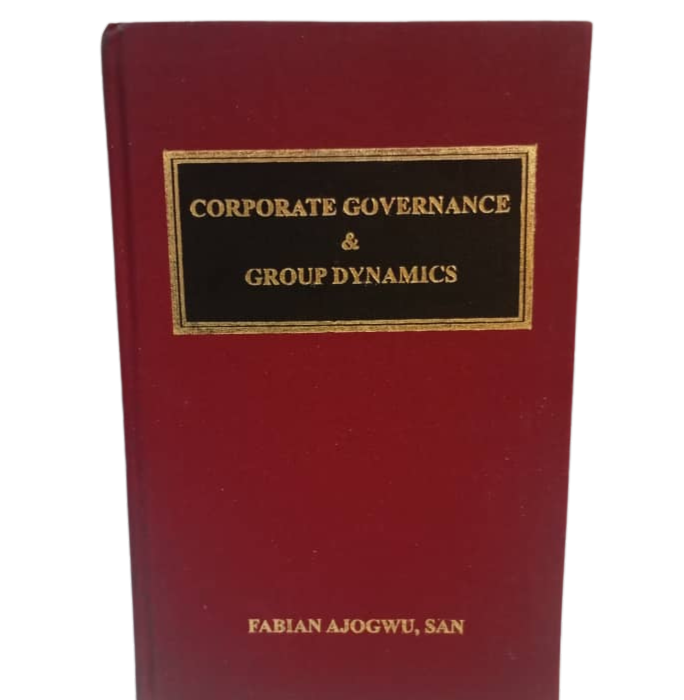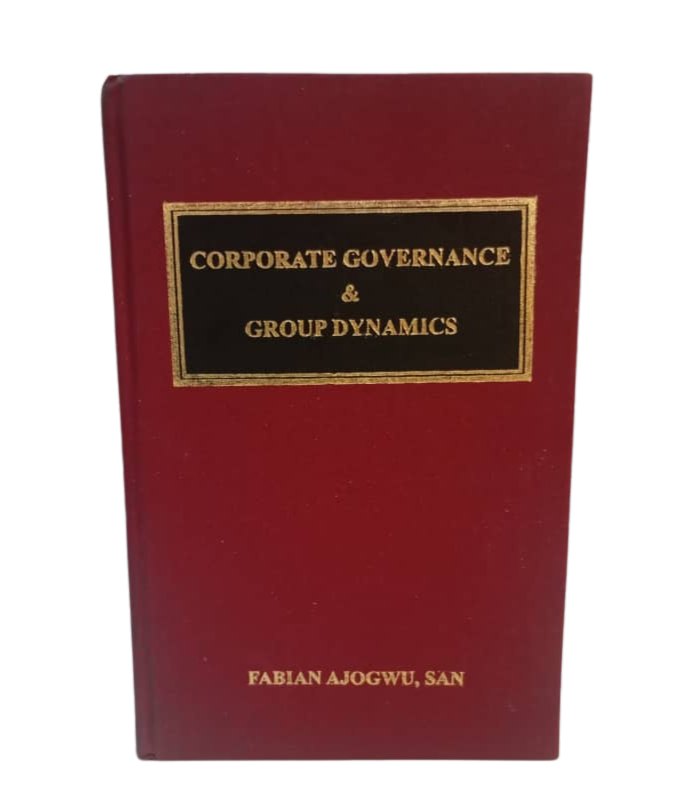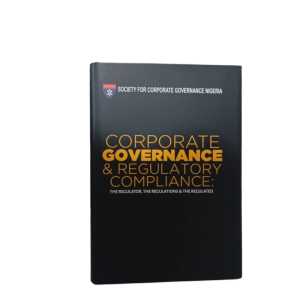Corporate Governance & Group Dynamics
₦32,000.00
In this revised edition of ‘Corporate Governance & Group Dynamics,’ significant legal developments that have taken place since the book’s initial publication in 2013, have necessitated an update to the laws and principles discussed within. These developments, including the introduction of the Nigerian Code of Corporate Governance (NCCG) 2018, the amended
Companies and Allied Matters Act (CAMA) 2020, and the Financial Reporting Council of Nigeria (FRCN) Act 2023, have contributed to the evolving landscape of corporate governance in Nigeria. These legal instruments have introduced new principles, guidelines, and requirements that companies must adhere to, and readers will benefit from insights into how they impact various aspects of corporate governance in Nigeria.
The incorporation of these updates into the revised edition is crucial for readers to gain an up-to-date understanding of the legal environment and its implications for corporate governance.
100 in stock
Description
ISBN: 978_978_62048_3_3
It is generally agreed that the leadership provided by the Board will always be a significant factor in the successful running of the enterprise. For many years, the discussion has focused mainly on the need for the corporation to be governed by an efficient Board, and the emphasis has been on adhering
to the principles of corporate governance especially in relation to globally accepted best practices. However, it is becoming increasingly clear that some attention should be given to the more complex relationships that exist between companies operating within a group structure, for the simple
reason that the actions of the parent often affect the subsidiary and vice-versa.
This book, turning the searchlight on this complex area of company administration, is indeed a welcome addition to the literature on corporate governance and enterprise development, especially because it raises questions about the suitability of existing models of corporate governance
in Nigeria for dealing with the complexities of group structures, particularly in the banking and financial services sector.
The Author makes the point clearly that ‘corporate governance within groups is better observed when the respective boards of the parent, as well as the subsidiaries, are accountable to their respective shareholders and stakeholders, and take responsibility for the direction of the specific enterprise that they are by law responsible for.’ He believes that it is precisely the lack of this accountability and responsibility that has led to the corporate maladministration and failures of recent times. The Author goes further to recommend that ‘it is this specific responsibility of each board that could ensure proper disclosures, integrity in financial reporting and a duty of accountability of management to the shareholders’.
H.E. Dr Christopher Kolade, CON
Formerly, Nigerian High Commissioner to the United Kingdom
Formerly, President, Society for Corporate Governance Nigeria Lagos,
June 23, 2013
Additional information
| Weight | 0.521 kg |
|---|---|
| Dimensions | 24 × 16.2 × 2.8 cm |






